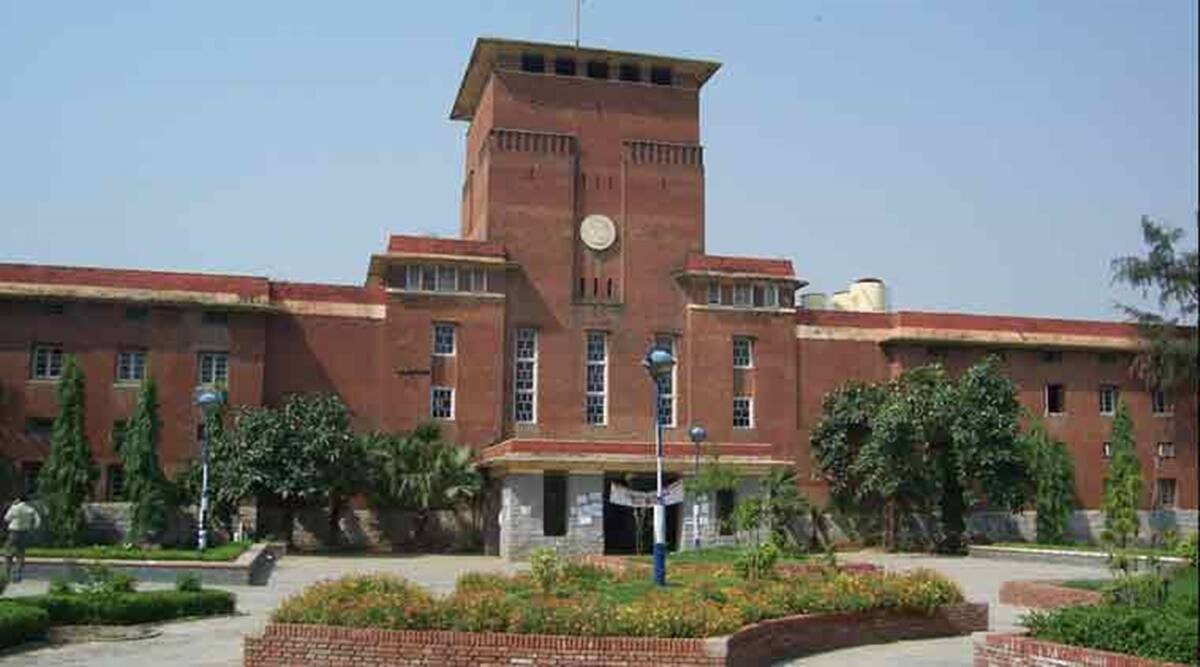
“In this day and age, censoring what should be learnt tarnishes India’s image at the national and international level,” says English Literature Professor and Academic Council (AC) member Mithuraaj Dhusiya. He was speaking to SabrangIndia in connection with the Delhi University’s (DU) recent decision to exclude three major Dalit women writers from the B.A. English literature syllabus at the recommendation of the Oversight Committee (OC).
On August 26, the DU accepted the suggestion to remove teh works of Tamil Dalit feminist writers Bama and Sukhartharini, and internationally acclaimed Mahasweta Devi, from the Semester 5 course. The committee claimed these exclusions were done to ensure that “no sentiments are hurt”.
Ironically, this recommendation itself has sparked huge criticism from the academic community. Reacting to the press release and OC recommendation, Democratic Teachers’ Front (DTF) President told SabrangIndia, “It is a dangerous argument to say they do not want to hurt sentiment. When we question privileged and privileged systems, sentiments are bound to be hurt. This is a very dangerous stand.”
Further, Narain expressed shock at OC officials’ claim that they don’t look at caste or where a person comes from. She said such thinking invisibilises caste issues, causing marginalised communities to lose their voice.
“They may not think caste exists but that doesn’t change the fact that it’s there. They talk of merit and diversity. Who decides this merit? The OC has no business imparting its social preferences. They bypassed all laws about syllabus changes. This exclusion based on ideological perception will take us backward,” she said.
Similarly, Dhusiya, also a member of the DTF said, “I find the DU’s press release and OC’s recommendation to be odd. I don’t agree with their claim of the ‘involvement of relevant stakeholders’. What is the OC’s composition? Is there anybody related to English literature let alone Dalit literature?”
Who are the excluded women writers?
Bama and Sukhartharini represent Dalit and feminist writings from Tamil Nadu. As such, they represent three societal groups and provide quality education to the students in northern India. According to Dhusiya, the DU as a central university has a responsibility to educate its students about literature from different states and regions.
“If we remove them, then our students will suffer greatly. They’re the next generation. So, they should know about the issues of these communities,” he said.
Similarly, Mahasweta Devi is an internationally acclaimed Bengali writer whose works have garnered many awards, some from the Indian government as well. Her deleted short story ‘Draupadi’ talks about a tribal woman who is sexually assaulted by officials after being accused of being a Naxal.
“In her work, she talked about tribal oppression and suffering. ‘Draupadi’ has been taught since 1999 and till today we have not received any complaint. The world is expanding but here in DU there is a different environment. Where is our society going? It is important to expose students to such important literature,” said Dhusiya.
Academics condemn the sudden omission
According to the DTF members of the AC, the university’s assent to the exclusion indicates administrative complicity in the “unacademic exercise” that did not seek the consent of the competent authority, the Committee of Courses.
“The claim of the press release is utterly false and misleading: the Oversight Committee was conspicuous by its undemocratic decision-making of issuing fiats to the English department without giving any academic rationale,” said the AC in a dissent note signed by 15 elected members.
Members said the OC undermined the collective efforts and democratic processes undertaken by the Department of English in framing the syllabus through its subject committees. They condemned the OC’s politically influenced decision.
Reacting to the decision, English Associate Professor Rina Ramdev – involved in the framing of the syllabus prior to the OC notice – posted on her social media, “We’ve come to a dangerous pass, where vested interests at the university are being allowed to dictate a politics that believes in dismantling every attempt at ensuring plurality, and the mainstreaming of difference and marginality, one that students should be able to account for through powerful writings that we equipped our syllabi with.”
The AC said the DU press release clearly expresses its ignorance of the subject and underlines its prejudice against marginal voices of the society. They called the excuse of hurting sentiments, a blatant attempt to impose thought control of dominant and privileged social groups.
“By suggesting that the syllabus should merely uphold the status quo and not critique or question the same, the DU press release has actually undermined the very ethos of a University,” said the AC.
Related:
India will remember Gail Omvedt forever
51 Reasons to say goodbye to NEP 2020: AIFRTE
NCPCR suggests extending RTE to all minority institutions
Central universities falling short of filling up posts reserved for SC-ST-OBC